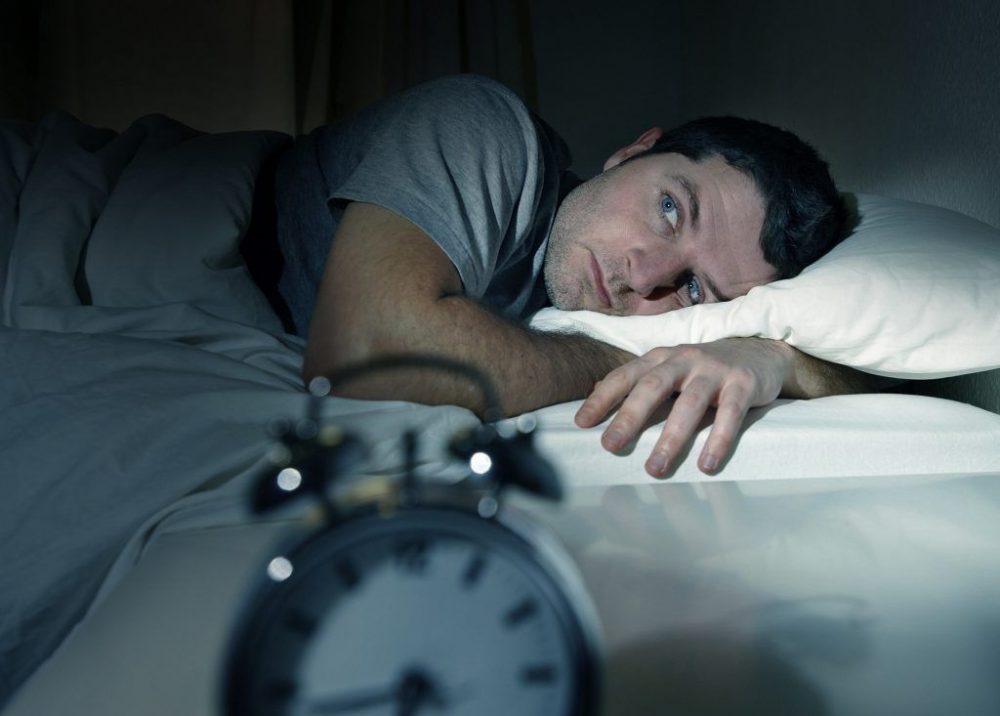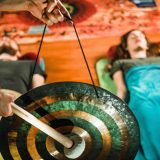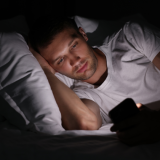

With work, kids, errands, activities, housework and more, it’s been a long day — so you expect to fall asleep the minute your head hits the pillow!
Or … not. Instead of drifting off to sleep right away, you toss and turn. Or perhaps you fall asleep but your eyes pop open again at 2:00 a.m. Either way, the frustration you feel only makes your insomnia worse.
What’s going on here? You’re exhausted, so why can’t you get to sleep or stay asleep?
Insomnia: More Common Than You Think
An estimated 50-70 million Americans are affected by a sleep or wakefulness disorder. The Behavioral Risk Factor Surveillance System (BRFSS) survey, as reported by the CDC, revealed that:
- Over 35% of adults reported that they sleep fewer than 7 hours per night
- Almost 38% reported falling asleep unintentionally during the day at least once in the preceding month
- 48% reported that they snore, which is a sign of obstructive sleep apnea — a major cause of insomnia
- Most frightening of all, insomnia affects you while driving: 4.7% reported that they nodded off at the wheel at least once in the preceding month
Clearly, insomnia can cause a range of problems, from fatigue and irritability, to difficulty concentrating at work, to dangerous driving.
What’s Our Problem with Sleep?
Both sleep and lack of sleep are highly individual. The National Sleep Foundation lists numerous medical causes of insomnia, including asthma, nasal or sinus allergies, acid reflux, chronic pain, arthritis, neurological conditions such as Parkinson’s disease and many more.
However, many people suffer from insomnia that isn’t linked to a health problem. These insomniacs often have one or more of these behavioral causes in common:
- Thinking too much. If you’re stressing about something, the time to mentally work it out is not when you’re trying to go to sleep. Set aside a time earlier in the day to deal with and resolve stressful problems.
- You ate a big meal too close to bedtime. A heavy meal like steak, eaten too late at night, will keep you awake because your body has to work hard to digest it. But on the other hand …
- You may need a light snack. Particularly if you’re dieting or eat dinner very early in the evening, your stomach might wake you up with hunger pangs! Grab a small protein-rich bedtime snack like a hard-boiled egg, a spoon of peanut butter or a piece of cheese.
- Caffeine too late in the day. Try to cut back on your coffee or soda consumption or drink them earlier if having them in late afternoon seems to affect your sleep.
- Oversleeping on the weekend. That extra hour or two of sleep on Saturday or Sunday? Not as helpful or restful as you thought. Sleeping in throws your biological clock off schedule and makes it more difficult to get to sleep when you return to your regular weekday schedule.
- Too much light in the bedroom. Turn off the computer an hour or so before you want to go to sleep and make sure alarm clocks and other electronics aren’t putting too much light into the room. You might even want to purchase some light-blocking curtains.
- Pets in the bedroom. Sure, it’s cute and cuddly to have your pet snuggle up to you at night, but your dog or cat can really interfere with your sleep. Find a way to keep them out of the bed.
Many of these common sleep issues are easy enough to address with some lifestyle changes. Others, however, are more complex and require a closer look past the symptoms to their underlying cause.
Sleep Problems and Your Liver
Traditional Chinese Medicine (TCM) recognizes the connection between insomnia and liver problems. As we explained in this article from LiverSupport.com “Chinese Medicine Links Liver Disease with Insomnia,” the liver does its processing during the wee hours of the morning, typically 1-3:00 a.m. The link between the liver and sleep problems makes sense to those with liver disease, as that’s when many patients report having difficulty sleeping.
Strong emotions such as anger, worry and stress also disrupt liver function and can contribute to insomnia in multiple ways. Alcohol consumption is also well-known for interfering with both liver function and sleep.
Sleep Solutions
The tips above can help you address your sleep problems from several angles — from behavioral changes such as not sleeping late on weekends and ensuring that your bedroom is dark enough, to providing your liver with the support it needs to function well and stay healthy.
A liver health supplement can help you detox and enjoy better liver function, which not only helps you sleep better at night but can help you have more energy during the day.
If you do use a sleep aid, be sure to use a natural one such as melatonin that is both fast-acting and non-habit-forming. When you start sleeping well, you’ll wonder how you ever functioned before!




